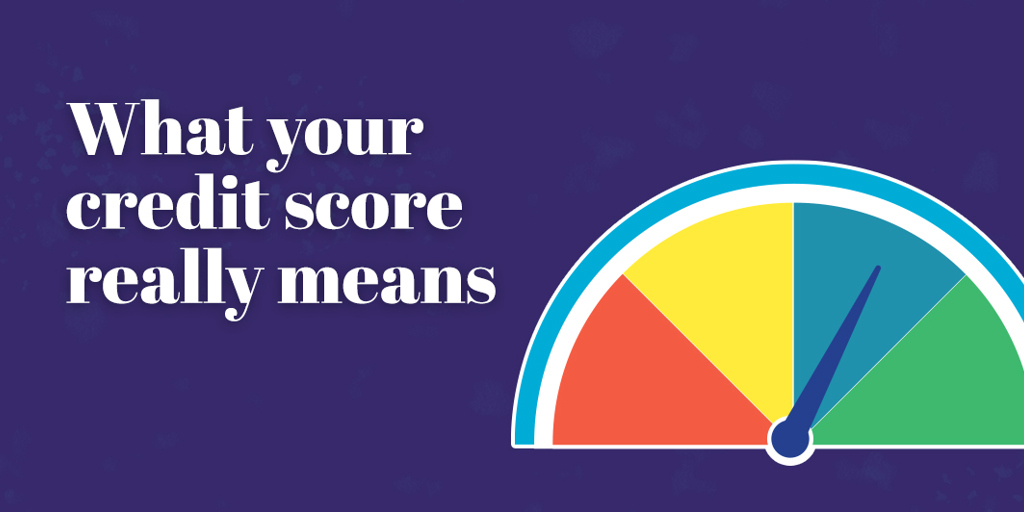


What Your Credit Score Really Means
Ever wonder how important your credit score is?
Well, that three-digit number has a lot of power. It can make or break your ability to receive a loan, a credit card, affordable car insurance and even rent an apartment.
At its most basic level, your credit score is a reflection of your debt-management practices. High credit scores are taken to mean you are less of a risk and in turn, more likely to make consistent, timely payments.
There are three main credit bureaus in the United States: Experian, Equifax and TransUnion. You might also hear your credit score referred to as a FICO score. FICO scores are calculated based on the credit reports from those three bureaus. FICO scores, which are regarded as the most widely known credit scoring brand, were introduced by the Fair Isaac Corp. in 1989. The average national FICO credit score is 706 – a “good” credit score, according to FICO. You can request your FICO score from myfico.com. FICO charges a fee.
In general, credit scores fall along the following lines:
- Poor – less than 579
- Fair – 580-669
- Good – 670-739
- Very Good – 740-799
- Exceptional – 800-850
What information is contained in a credit report?
A credit report is a snapshot of your credit profile including your credit history. Federal law gives you one free credit report per year from each credit bureau. Simply visit annualcreditreport.com or call (877) 322-8228 to obtain your free copy. You can also get a free credit report in cases of reported fraud or if you are denied a loan or credit application.
What’s included in your credit report:
Public records:
- Lawsuits and bankruptcies
- Judgements
- Delinquent or unpaid taxes
Personal Information:
- Name and birthdate
- Social Security number
- Address
- Name of spouse and/or employer
Credit Accounts:
- Debt status
- Credit limits
- Open and closed accounts
Credit Inquiries:
- Credit agencies that have requested to verify your credit in the past two years
What affects my credit score?
Data on your credit report determines your credit score. That includes information like your repayment history, the number of tradelines you have, whether you pay your bills on time, collections accounts, length of credit history, types of credit used and debt.
What does not impact my credit score?
- Salary
- Occupation
- Job title
- Assets
- Age
- Race
- Gender
- Marital status
How do I improve my credit?
If your credit is not where you want it to be, there are actions you can take to improve your credit. Monitor your credit report and scores for accuracy. Use less than 30 percent of your available credit. Do not max out your credit card(s). Pay your bills on time. Pay off your credit card bills each month in full. Do not apply for multiple loans and credit cards at the same time. Create and follow a monthly budget and make a financial plan or debt-management plan to reduce debt.
Amanda Kegerreis is the Residential Mortgage/Consumer Lending Processing Manager for F&M Trust.
Recent Articles
Join our e-newsletter
Sign up for our e-newsletter to get new content each month.






















